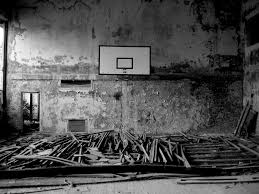The conversation about a particular sport is loudest during its competitions, events or tournaments. The excitement and anticipation that builds up before the tournament as well as the celebration or disappointment – as the case might be – afterwards makes sports one of the most efficient connections to people’s emotions.
Basketball conversation in Nigeria was loudest last year when the male National basketball team – DTigers – became African champions for the first time in the history of the Tournament. The conversation is still on as we countdown to the 2016 Summer Olympics.
As expected, the female senior team received similar attention during AfrobasketWomen Competition and the FIBA Women’s Olympic Qualifying Tournament.
It is obvious that we need more tournaments to keep the conversation going and to keep the interest of the sport in the heart of the fans. I strongly believe this is the main reason behind the new FIBA Competition System and Calendar. The new system increases the number of games played by national teams in their home countries. It will also address the threatened economic viability as other sports improve their positions.
This a good idea. However, there a limit to the number of national team games that can be played in one year. So the most ideal type of tournament needed to promote basketball in any territory are the leagues.
The largest basketball organization in the continent is FIBA Africa and they are responsible for organizing the FIBA Africa Clubs Champions Cup and the FIBA Africa Women’s Clubs Champions Cup. These competitions are the highest level of club basketball and they feature top teams from the professional leagues of member federations.
Teams from Nigeria that have featured in the male tournament include Kano Pillars, Mark Mentors, Dodan Warriors (now Lagos Warriors), Ebun Comets, Niger Potters, Plateau Peaks, Royal Hoopers (now Rivers Hoopers) and Union Bank. Only Lagos Warriors and Kano Pillars have medals to show for it.
Female clubs include Bini Queens (once in 1987), Dolphins (5x), First Bank (14x), First Deepwater (4x) and Nigeria Customs (once in 2001). First Bank and First Deepwater are the only clubs with podium finish.
These participating teams play in a zonal qualifiers in the last quarter of the year. The zonal qualifiers usually span for about a week while the Clubs Championships run for 10-14 days.
Image Cred – FIBA Africa
Because of the format, frequency and the timing for the competition, there is a major disconnect between the basketball fans in African and these continental tournament. Also since the qualifiers and the championship are played in selected host countries, fans of participating clubs do not get to see their team play against other African teams on home court.
The African Basketball League (ABL) is a private basketball league which aims to bridge the gap in continental basketball; and in the process, create a system that will support the creation of viable and valuable basketball franchises.
The maiden season of the ABL tipped off early this year with 6 teams from 4 countries – Nigeria, Senegal, Cote D’Ivoire and Gabon. Games were played in Lagos and Abidjan. For the first time in a very long time, fans of Lagos teams – Lagos Warriors, Lagos Islanders and Stallions (former Union Bank Basketball Team) and Nigerian basketball fans generally witnessed these clubs take on other African clubs right here in Lagos. I am sure this is how the Abidjan fans also during the ABL Final Four in Abidjan.
This is great development for basketball in Africa and considering that the ABL plans to expand to 30 teams from 15 different countries, continental basketball will be closer to the hearts of the fans than ever.
However, regardless of the existence and improvement of continental basketball in Africa, the NBA still remain the most popular basketball league in the world and as expected, its reach covers the entire continent. Basketball fans here know more about the NBA teams and their players than they do the clubs in their respective countries.
Asides the general popularity of the league, the fact that well above 30 players with African descent have played in the NBA at different times including Hall of Famers Dikembe Mutombo and Hakeen Olajuwon has endeared the league more to fans in the continent.
The league has not rested on its oars. It has also invested in African through various youth development programmes including Basketball without Borders, Power Forward, NBA Jnr etc. The NBA also gave the fans a first-hand experience with an exhibition basketball game between Team World and Team Africa in Johannesburg last year.
The latest effort from the league to harness the relationship with Africa was the multiyear partnership with Econet media for the delivery of live NBA games and programming across TV, internet and mobile to fans in sub-saharan Africa via Kwese Sports.
Based on the followership of this elite sport in Africa, it is safe to conclude that basketball is full of potentials that is yet to be fully optimised in the continent.
So, as the appetite for basketball increase, who conquers the African market – FIBA, ABL or NBA?


Comments